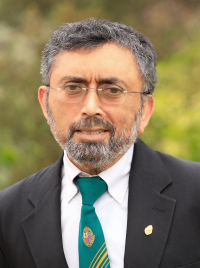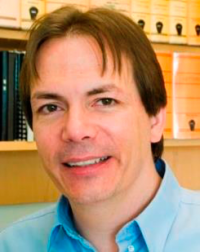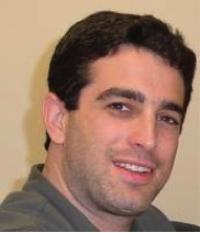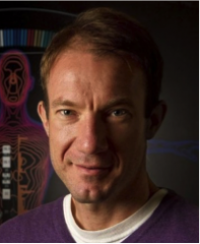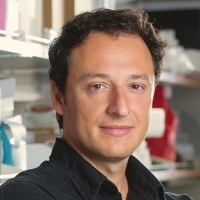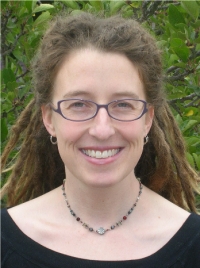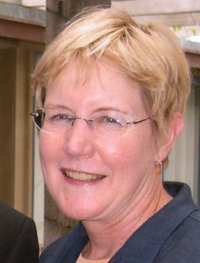The Genetics of Humanness
Biographical Sketches: Co-Chairs
UC San Diego School of Medicine
Ajit Varki is a Distinguished Professor of Medicine and Cellular & Molecular Medicine, Emeritus Co-Director of CARTA, Emeritus Co-Director of the Glycobiology Research and Training Center at UC San Diego, and Adjunct Professor at the Salk Institute. He received basic training in physiology, medicine, biology, and biochemistry at the Christian Medical College (CMC), Vellore, The University of Nebraska, and Washington University in St. Louis. He also has formal training and board certification in internal medicine, hematology, and oncology. Varki is the executive editor of Essentials of Glycobiology (Cold Spring Harbor Press, 4th Edition, 2022) and is recipient of a MERIT award from the NIH, and an American Cancer Society Faculty Research Award. Honorific elections include the American Academy of Arts and Sciences, the National Academy of Medicine, the American Society for Clinical Investigation, and the Association of American Physicians. He is also recipient of the three highest honors in his field, the Karl Meyer Award of the Society for Glycobiology, the International Glycoconjugate Organization Award and the Rosalind Kornfeld Award for Lifetime Achievement in Glycobiology. He is recognized for creating the first major open access research journal (J. Clin. Invest., 1996) as well as the first major open access textbook (Essentials of Glycobiology, 2009). He was honored with the Old Cottonian of Eminence Award at the 150th Anniversary of Bishop Cotton Boys School, Bangalore, India, (2015) as well as a Distinguished Faculty Medal and Oration at his medical school alma mater, CMC, Vellore. Significant past appointments include: Co-Head, UC San Diego Division of Hematology-Oncology; President of the Society for Glycobiology; Editor-in-Chief of the Journal of Clinical Investigation; Interim Director of the UC San Diego Cancer Center, President of the American Society for Clinical Investigation, and UC San Diego Associate Dean for Physician-Scientist Training. Varki's research interests are focused on a family of cell surface sugars called sialic acids, and their roles in biology, evolution and disease. Currently, active projects are relevant to the roles of sialic acids in microbial infectivity, the regulation of the immune response, the progression and spread of tumors, aging, and unique aspects of human evolution. His group is particularly intrigued to find multiple interrelated differences in sialic acid biology between humans and our closest evolutionary cousins, the "great apes." These differences are a signature of the events that occurred during the last few million years of human evolution, and appear to be relevant to understanding several aspects of the current human condition, both in health and disease. Varki’s book, Denial (Twelve, Hachette Books, 2013), explores a novel "Mind Over Reality Transition” (MORT) theory that denying reality and personal mortality was a key step in allowing the emergence of a full theory of mind, and in the origin of our species.
The Ohio State University
Elaine Mardis is Associate Professor of Genetics, Department of Genetics, Washington University in St. Louis. MO, and Senior Research Scientist, Genetic Systems Division, Bio-Rad Laboratories, Hercules, CA. My research interests predominate in DNA sequencing-related technologies. As Co-Director of the Genome Sequencing Center, I help to select genomes of interest and evaluate the optimal sequencing strategy to apply to each genome. As Director of Technology Development at the GSC, I supervise a group that includes engineers and molecular biologists toward exploring and optimizing the most current technologies related to DNA sequencing, both from the standpoint of commercially available kits and instrumentation to the development of custom devices. This group has been responsible for providing many of the advances that have enabled Genome Sequencing Center production sequencing efforts to progress to higher and higher levels of throughput, efficiency and cost-savings over the years, and those efforts continue. In addition, we now are embarking on projects that center around re-sequencing, or mutational profiling, of many human genomes, namely in the context of trying to understand disease-specific somatic mutations that may predict disease onset or outcomes. This new frontier for genome sequencing of the human will continue to fuel medical discoveries for many years to come. I also have an active interest in the use of microarray technology, not only for gene expression profiling on spotted arrays using long oligonucleotide probes, but also for exploring large-scale amplification and deletion of segments of the human genome using BAC tile path arrays. These array CGH assays will provide an important adjunct to the information gained from mutational profiling of human patient samples, in helping to understand large-scale phenomena in the course of diseases, especially cancer.
Biographical Sketches: Speakers
University of Washington School of Medicine
Evan Eichler, PhD, is a Professor and Howard Hughes Medical Institute Investigator in the Department of Genome Sciences, University of Washington School of Medicine, and serves on the CARTA External Advisory Board. He graduated with a B.Sc. Honours degree in Biology from the University of Saskatchewan, Canada, in 1990. He received his PhD in 1995 from the Department of Molecular and Human Genetics at Baylor College of Medicine, Houston, Texas. After a Hollaender postdoctoral fellowship at Lawrence Livermore National Laboratory, he joined the faculty of Case Western Reserve University in 1997 and later the University of Washington in 2004. He was a March of Dimes Basil O’Connor Scholar (1998–2001), appointed as an HHMI Investigator (2005), awarded an AAAS Fellowship (2006) and the American Society of Human Genetics Curt Stern Award (2008), and elected to the National Academy of Sciences (2012) and the National Academy of Medicine (2017). He is an editor of Genome Research and has served on various scientific advisory boards for both the NIH and NSF. His research group provided the first genome-wide view of segmental duplications within human and other primate genomes and he is a leader in an effort to identify and sequence normal and disease-causing structural variation in the human genome. The long-term goal of his research is to understand the evolution and mechanisms of recent gene duplication and its relationship to copy number variation and human disease with a specific emphasis on the genetic architecture of autism and neurodevelopmental delay.
UC San Diego
Pascal Gagneux is CARTA's Executive Co-Director, a Professor of Pathology and Anthropology, and the Department Chair of Anthropology at UC San Diego. He is interested in the evolutionary mechanisms responsible for generating and maintaining primate molecular diversity. The Gagneux laboratory studies cell-surface molecules in closely related primates species. His focus is on glycans, the oligosaccharides attached to glycolipids and glycoproteins of the surfaces of every cell and also secreted into the extra-cellular matrix. Gagneux's laboratory is exploring the roles of molecular diversity in protecting populations from pathogens as well as potential consequences for reproductive compatibility. Dr. Gagneux’s interest is in how glycan evolution is shaped by constraints from endogenous biochemistry and exogenous, pathogen-mediated natural selection, but could also have consequences for sexual selection. Dr. Gagneux has studied the behavioral ecology of wild chimpanzees in the Taï Forest, Ivory Coast, population genetics of West African chimpanzees, and differences in sialic acid biology between humans and great apes with special consideration of their differing pathogen regimes. In 2011, while Associate Director of CARTA, Dr. Gagneux helped to establish a graduate specialization in Anthropogeny at UC San Diego. This wholly unique graduate specialization is offered through eight participating graduate programs in the social and natural sciences at UC San Diego.
The University of Chicago
Yoav Gilad is an associate professor of human genetics at the University of Chicago. His research is focused on studying genetic and regulatory differences between humans and our close evolutionary relatives, with the long-term goal of identify the genetic basis of human-specific traits, including genetic variation that underlies higher susceptibility to certain diseases and disorders in humans than in other primates. Gilad’s work is funded by several federal grants to study genetic variation in humans and close evolutionary relatives.
University of California, Santa Cruz
Richard “Ed” Green is an assistant professor of biomolecular engineering, Baskin School of Engineering, UC Santa Cruz. Professor Green was born and raised in Atlanta, Georgia. He graduated from the University of Georgia in 1997 with a B.S. in genetics. He was a Peace Corps volunteer in Barentu, Eritrea in 1997 and 1998, teaching Math & Physics. He took his Ph.D. from the University of California, Berkeley in 2005. His advisor was Steven Brenner with whom he co-authored 14 papers on a wide-variety of computational biology subjects. In 2005, he joined Svante Paabo’s group at the Max Planck Institute for Evolutionary Biology as an NSF Postdoctoral fellow in Bioinformatics. There, he helped form and lead the Neandertal Genome Sequencing Consortium that sequenced the genome of our closest extinct relative from DNA recovered from 38,000 year old bones. This paper won the Newcomb Cleveland Prize for the best paper in the journal Science for 2010. Since 2010, Ed has been an Assistant Professor of Biomolecular Engineering at the University of California, Santa Cruz. He is a Kavli Scholar, a Searle Scholar, and a Sloan Research Fellow. His current research program is generally involved in using genomics to answer fundamental biological questions.
UCLA David Geffen School of Medicine
Genevieve Konopka, Ph.D., became Chair of the Department of Neurobiology in the David Geffen School of Medicine at UCLA, effective July 1, 2025.
Dr. Konopka was Professor and Vice Chair of Neuroscience, the Jon Heighten Scholar in Autism Research, and the Townsend Distinguished Chair in Research on Autism Spectrum Disorders at UT Southwestern Medical Center. Dr. Konopka received dual B.S. degrees in Brain and Cognitive Sciences and Biology from MIT and completed her Ph.D. in Neurobiology at Harvard University. She also completed fellowships in developmental biology with Dr. Stephen Duncan at Medical College of Wisconsin and in neurogenetics with Dr. Dan Geschwind at UCLA.
She has been the recipient of numerous awards including a NARSAD Young Investigator Award, an NIH Pathway to Independence Award, a Basil O’Connor Scholar Award from the March of Dimes, a Young Investigator Award from the International Society for Autism Research (INSAR), a Kavli Fellow of the National Academy of Sciences, and an Understanding Human Cognition Scholar Award from the James S. McDonnell Foundation. The research in the Konopka lab focuses on understanding the molecular pathways important for human brain evolution that are at risk in cognitive disorders such as autism, schizophrenia, and Alzheimer’s disease. Her lab uses a combination of human neurons, animal models, and primate comparative genomics to uncover human-specific, disease-relevant patterns of gene expression. Recent work in her lab integrates gene expression with signatures of neuronal activity in the human brain. The Konopka lab is also part of the international Human Cell Atlas effort to map gene expression in every cell of the human body.
UC San Diego
Dr Muotri is a Professor at the Departments of Pediatrics and Cellular & Molecular Medicine at UC San Diego and an Associate Director of CARTA, in addition to being the Director of the Stem Cell Program and of the Archealization Center at UC San Diego. Dr Muotri earned a BSc in Biological Sciences from the State University of Campinas in 1995 and a Ph.D. in Genetics in 2001 from the University of Sao Paulo, in Brazil. He moved to the Salk Institute as Pew Latin America Fellow in 2002 for postdoctoral training in the fields of neuroscience and stem cell biology. His research focuses on brain evolution and modelling neurological diseases using human-induced pluripotent stem cells and brain organoids. He has received several awards, including the prestigious NIH Director’s New Innovator Award, NARSAD, Emerald Foundation Young Investigator Award, Surugadai Award, Rock Star of Innovation, NIH EUREKA Award, and two Telly Awards for Excellence in Science Communication among several others.
Yale University
James Noonan is an Associate Professor of Genetics and a member of the Kavli Institute for Neuroscience at Yale School of Medicine. His research focuses on identifying changes in gene regulation during early embryonic development that contributed to the evolution of uniquely human biological traits. Dr. Noonan received his Ph.D. in Genetics from Stanford University in 2004. He did his postdoctoral research at Lawrence Berkeley National Laboratory, where he worked with Dr. Edward Rubin to develop methods to sequence Neandertal genomic DNA. Dr. Noonan joined the Yale Genetics faculty in 2007. He was awarded a Mallinckrodt Foundation Fellowship in 2008. He serves on the editorial board of Genome Research, is a member of the American Society of Human Genetics and the American Association for the Advancement of Science, and has served as an ad hoc reviewer for numerous journals including Science, Nature, Nature Neuroscience and Cell.
University of California, San Francisco
Katherine Pollard is Director of the Gladstone Institute of Data Science & Biotechnology, a Chan-Zuckerberg Biohub Investigator, and Professor in the Division of Bioinformatics at University of California, San Francisco. She has a PhD in Biostatistics from University of California, Berkeley, where she played a key role in the development of statistical methods and open-source software (http://bioconductor.org) for analysis of DNA microarrays. She was a postdoctoral fellow in comparative genomics at University of California, Santa Cruz from 2003 to 2005, where she participated in the chimpanzee genome project and discovered Human Accelerated Regions. From 2005 to 2008, Katherine was Assistant Professor in the Genome Center and Department of Statistics at University of California, Davis. In 2008, she moved to Gladstone Institutes and University of California, San Francisco.
Katherine was awarded the Thomas J. Watson Fellowship in 1995 and the Sloan Research Fellowship in 2008. The UC Berkeley School of Public Health recognized her as Alumna of the Year in 2013 and as one of its 75 most influential alums in 2018. The San Francisco Business Times honored her in 2018 as one of its Women Who Lead in the Life Sciences. She is a member of the California Academy of Sciences.
The Pollard lab develops statistical and computational methods for the analysis of massive genomic datasets. The group specializes in evolutionary genomics, in particular identifying genome sequences that differ significantly between or within species and their relationship to biomedical traits.
UC San Diego
Margaret Schoeninger is Distinguished Professor Emerita of Anthropology at UC San Diego, a Research Archaeologist in the Glenn Black Laboratory of Archaeology at Indiana University, and Emerita Co-Director of CARTA. She has done fieldwork in North America, Mexico, Pakistan, India, Kenya, and Tanzania as well as laboratory research on carbon, nitrogen, and oxygen stable isotope ratio analysis in biological tissues and food component analysis of traditional foods. Her major interest is in the evolution of human diet particularly as it informs our understanding of the appearance and evolution of the human lineage.
